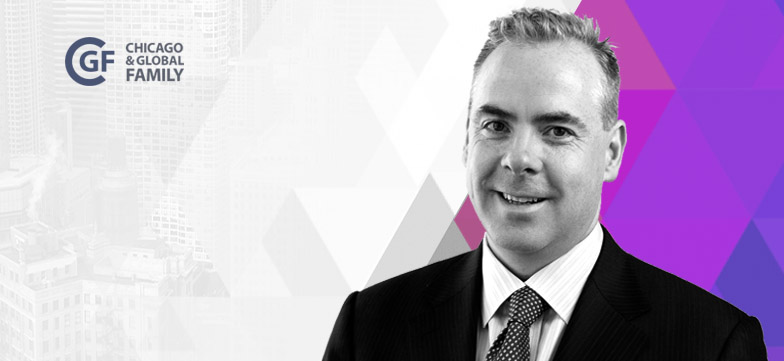By Jihan Dubose and Brianna Deigan
“In order to realize the value of technology, we must give up privacy; we must be more tolerant of human behavior that isn’t harmful.”
On Wednesday, June 24th, Niagara Foundation had the pleasure of welcoming Daniel X. O’Neil to speak at a Chicago Global Family event, “Making Lives Better through Technology.” As the Executive Director of the Smart Chicago Collaborative, Mr. O’Neil’s talents and past times may surprise you. This UIC graduate has used his background in English and Anthropology to author four published books of poetry and take a crack at playwriting!
But Mr. O’Neil’s commitment to social justice is what drew him to technology, and propelled him to becoming the influential change-maker he is is today. His dedication to helping people from all walks of life and belief that technology can be used to create a better tomorrow are just two of the reasons he his so effective as the Executive Director of Smart Chicago. The Smart Chicago Collaborative is a civic organization here in Chicago that strives to reach beyond the constraints of socio-economics to improve lives through technology. The organization’s main focuses are: providing internet access, teaching digital skills, and interpreting meaningful data. Founded by the MacArther Foundation, Chicago Community Trust, and City of Chicago, Smart Chicago uses their support to address the pivotal question: “How can we use technology to help people”?
Smart Chicago has recently launched a program for the younger generation in the Chicagoland area. Youth Tech focuses on adolescents and teenagers in five Chicago communities, helping them discover how they can use technology to further their passions. Smart Chicago also works with Optimo One, a bilingual call center which provides employees with work experience and English language practice. O’Neil and his team were able to teach employees at this center how to use technology to manage information more efficiently. Here, is where O’Neil brought everything full circle. ( say something about how this is an example of how O’Neil address social justice issues through technology access and education)
While O’Neil and his dedicated team at Smart Chicago believe in what they’re doing, some skeptics question the trajectory of technology’s increasing presence in our lives. Many people are concerned that technological advancements have the potential to put people out of work. According to O’Neil, efficiency can be overdone, but benefit management is key regarding technology efficiency and job outsourcing. “I value people’s abilities,” he said. He also strongly promotes the use of ready-to-use technology to re-purpose in different ways. “It’s all about giving people agency to use technology” [ in the best way that benefits them].
Other guests expressed apprehension regarding surveillance and security, but leave it to O’Neil, accountability and not privacy, should be the concern. With a room full of inquiring minds, Mr. O’Neil’s enthusiasm and humor facilitated an enjoyable conversation about surveillance and security uneasiness. Mr. O’Neil explained that if people are willing to put the details of their lives on social media forums like Facebook, the public should regard the government’s access to their information with the same apathy. In fact, Smart Chicago also signs contracts for open data management for the city of Chicago; and it is methods such as this which have access to more public information than many individuals realize.
The bottom line is that technology has opened the door to globalized conversation and instantaneous news. Yet, the disclosure of massive amounts of public information demands a great deal of responsibility from the parties on the receiving end. The evolution of avenues for human production has always been an exciting journey with many benefits and drawbacks. Regardless, it is people like David O’Neil and his team at Smart Chicago that make sure such advancements are available to as many people as possible. In today’s modern society, social justice includes having a virtual voice too.

